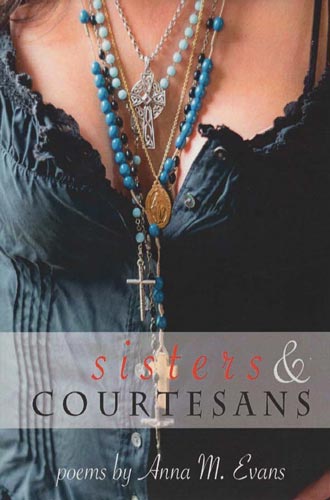Sisters and Courtesans
Greek dramatists called them “Chorus.” Virginia Woolf christened them “Judith Shakespeare.” In big-budget films with a religious, historic, or fantasy theme, they are “Extras.” On television, they form the zombie army on The Walking Dead or seek fame on reality TV, which is like turning zombie. With the exception of letters and journals written before the Industrial Revolution that survived by luck, there isn’t much to go on. Greek dramatists called them “Chorus.” Virginia Woolf christened them “Judith Shakespeare.” In big-budget films with a religious, historic, or fantasy theme, they are “Extras.” On television, they form the zombie army on The Walking Dead or seek fame on reality TV, which is like turning zombie. With the exception of letters and journals written before the Industrial Revolution that survived by luck, there isn’t much to go on. “They” are the unknown women who participated in and witnessed firsthand history that writers and artists kept in the background.
Anna M. Evans does not redress centuries of anonymity in Sisters and Courtesans. Instead, she presents lively, imagined lives. Their vocations are not surprising in that they deal with sex, servitude, religion or entertainment. Her women still are nameless but brought to life in 40 autobiographical sonnets.
Her poetic approach is ultimately more memorable than blogging, angry diatribes or—even worse—bland, politically correct biographies, or historical fiction targeting female YA readers who Sisters and Courtesans is perfect for. Rigid writing rules make for rich detail. A druid priestess knows the real magic she wields:
A little theatre’s all it takes. I roll
my eyes back, mumble, wail. He doesn’t guess
how much the kingdom’s under my control
Similarly, a serving wench of the Round Table sardonically recalls “King Arthur, though a noble man and kind, / was, to all their faults, completely blind.”
For quite a few, there is little or no regret in lives not chosen for them. An Aztec sacrifice relishes, “[. . .]my moment, never will I feel / as loved, as worshipped at I do tonight.” The Han Dynasty concubine who “taught herself to read behind closed doors” is “learning how to write in rhyme.” One of King Charles II’s many mistresses avoided the Plague and Great Fire of 1666 when her husband banished her from London. She calls it “silver linings” that his “corpse, alas, was never found.”
Despite fate being ultimately against her, a Carmelite nun feels relief being both removed and part of the Reign of Terror:
It’s truth that there’s often not that much to do,
but better cloistered here than dead out there.
In my hours of silent contemplation
I must confess I’ve wondered about God,
his tolerance for death and desecration.
The names of 16 Carmelite guillotined in 1794 are a matter of public record. Evans goes a small way in restoring respect for Francis Poulenc’s Dialogues of the Carmelites. The website Sinfini Music jokingly wondered why anyone would want to see the 1957 opera, as did soprano Deborah Voigt on her WQXR-produced radio series The Sopranos. She found humor in the sound of a guillotine incorporated into the score signifying the death of each nun.
It is that kind of short-cut thinking that Sisters and Courtesans counterbalances. These 40 lives are a fast read well-crafted enough to make readers want to reexamine favorite histories and works of art, music, and literature—and rediscover them with new appreciation and understanding.





